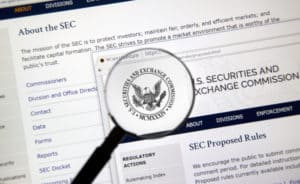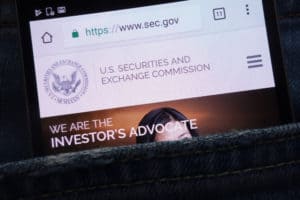
2018-11-25 17:58 |
As we discussed in the previous article, there are many parties that stand to benefit from a booming digital securities market. One important group that didn’t get proper mention (because they’re not a business) are the global regulators. In fact, digital securities (or security tokens) present some really unique and fantastic options that regulators all over the world will appreciate once they understand the power of digital ledger technology.
As an example of what’s possible, here are two scenarios:
Using a regional construct — An issuer chooses to only service the market of Norway. The digital security can be coded to restrict the offering and trading to only qualified residents of Norway.
Using a global construct — An issuer chooses to issue and allow trading in multiple jurisdictions. The digital security can be coded to allow investors around the world to purchase and trade the security in a compliant way based on the laws and regulations relevant to their jurisdiction.
In both of these scenarios, trade settlement is instantaneous and recorded on the immutable ledger of the blockchain.
The idea that a digital security can be coded to comply with existing securities laws and regulations for either local (including multiple jurisdictions) or global markets is an extremely powerful concept. The blockchain permits this to happen for the first time ever.
Let’s take a look at some common securities exemptions in the US regulatory regime that are typically used by digital securities issuers:
We are not lawyers, and the description of SEC regulations below should not be mistaken for advice, but rather a brief overview of what exceptions are common in the current digital securities space.
Registered SecurityMost blockchain based digital securities will not be registered. Registration is a complex, time consuming and expensive process best suited for established business with good accounting practices and a product / customer base. An IPO is a registered security, and it is available to the public on the day of issuance.
Exempt SecurityStartups and new venture capital projects are more likely to go with an exemption. Despite the name, exempt does not mean there is no paperwork or rules, quite the contrary. It limits who the issuer can solicit as an investor, advertising, exchange lockups and in some cases how much money they are allowed to collect, among other details.
A reason a startup is more likely to go this route is they simply do not have the money, functioning product or customer base to support the costs and accounting requirements for an IPO.
Regulation DThis is the most common exemption for new business.
Rule 506 (b)Attributes:
No soliciting or advertising
Unlimited number of accredited investors, 35 non accredited.
Accredited investor verification not required
Solicitation information must be free from false or misleading statements
Principals must be available to answer investor questions
Filing of Form D with SEC is required
Rule 506 (c)Attributes:
Unlimited capital can be raised
Can advertise and solicit
Only accredited investors allowed
Company must investor accreditation status
Preempts US State Laws
Shares are restricted from trade for 6 – 12 months
Filing of Form D with SEC is required
Reg SThis is a filing that a company makes that intends to raise capital for a security, but is not doing so within the US. The security cannot come back to the US. Issuers will often use this in conjunction with Regulation D.
Attributes:
Registration of offshore security
Cannot sell into US markets
Cannot transfer security to US persons
Reg A+This is a scaled down version of what is required to issue an IPO. It isn’t used very often, but there will be instances of it. It contains multiple tiers as well. There are benefits, but also limitations and complexities just as there are for an IPO.
Attributes:
Requires SEC review
Open to public (no accreditation required)
Max capital raise $50 million (Tier 2)
Preempts US State Laws for issuance (Tier 2)
US State Laws in play for trading
Annual and semi-annual reports required
Offering statement is audited
Reg CFCF stands for Crowd Funding. It is a regulation designed to help with bootstrapping a startup with seed capital. But because of this, it is severely limited on the amount of capital it can raise.
Attributes:
Open to public (no accreditation required)
Max capital raise $1 million
Shares are restricted from trade for 6 – 12 months
Annual report required
Available only to registered US companies
The post Digital Securities Regulation: An Overview Of Compliant Exemptions appeared first on Crypto Briefing.
origin »Bitcoin price in Telegram @btc_price_every_hour
Digital Rupees (DRS) на Currencies.ru
|
|






















